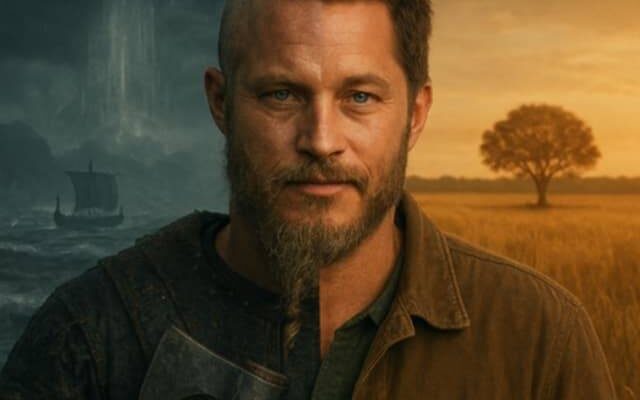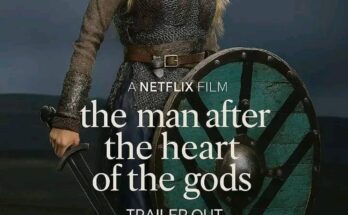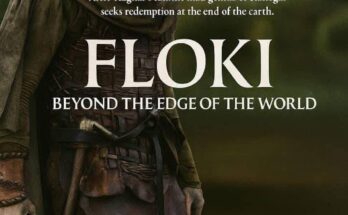“Beyond the Shores of Valhalla: Travis Fimmel’s True Story”
Few actors in recent memory have managed to blur the lines between history, myth, and personal identity as powerfully as Travis Fimmel. For millions of fans worldwide, his name will forever be synonymous with Ragnar Lothbrok, the iconic Viking leader he portrayed on the critically acclaimed series Vikings. Yet, behind the long beard, battle axe, and firelit charisma lies a man whose journey to stardom is as remarkable and unlikely as any saga penned by skalds of old. Beyond the Shores of Valhalla: Travis Fimmel’s True Story seeks to peel back the curtain and reveal the person beneath the legend, offering an intimate portrait of a life that has been anything but ordinary.
The documentary and its narrative foundation remind us that Fimmel’s career was never a straightforward march to fame. Born and raised on a sprawling dairy farm in Echuca, Victoria, Australia, he spent much of his youth far removed from the bright lights of Hollywood. His earliest years were filled with chores, physical labor, and the earthy realities of rural life. That grounding in simplicity and discipline would later inform the rugged authenticity that defined his portrayal of Ragnar and set him apart from other actors of his generation.
But Fimmel’s journey was not destined to remain within the confines of his hometown. As a young man, he was driven by restlessness and curiosity, qualities that mirrored the very Viking archetype he would one day embody. After leaving his home country, he found himself in the world of modeling almost by accident. A chance encounter in Melbourne led to an opportunity with Calvin Klein, thrusting him into a global spotlight as one of the most recognizable faces of the brand’s campaigns. In the blink of an eye, the Australian farm boy became an international symbol of glamour and allure.
The documentary highlights the paradox of this early fame. On one hand, it provided Fimmel with exposure and resources that opened the door to acting. On the other, it burdened him with the weight of an image that never quite aligned with his inner self. Friends and colleagues featured in the film recall how he often shunned the trappings of celebrity, preferring privacy and authenticity over the artificiality of red carpets. He was reluctant to embrace the glossy veneer of stardom, often choosing instead to retreat to quieter spaces, reflecting a humility that would later make his performances resonate even more deeply.
His shift from modeling to acting was not immediate nor easy. Fimmel faced skepticism from industry insiders who dismissed him as just another model trying to break into Hollywood. Yet he pursued the craft with determination, studying acting and embracing smaller roles that gradually honed his skills. His early performances hinted at a natural intensity, a depth of emotion that transcended surface-level appearances. By the time he auditioned for Vikings, he was not only prepared but uniquely suited for a role that required both raw charisma and deep vulnerability.
Vikings became a defining chapter in his career, and Beyond the Shores of Valhalla delves deeply into the impact of Ragnar Lothbrok on both Fimmel and the global audience. Ragnar was not simply a warrior; he was a visionary, a father, a husband, and a man perpetually torn between his ambitions and his loyalties. Fimmel’s performance captured this complexity with such conviction that Ragnar became more than a character—he became a cultural icon. The documentary reveals how Fimmel’s personal traits—his quiet intensity, his refusal to conform, his underlying humility—bled into the role, creating a synergy between actor and character rarely achieved in television.
But the film does not shy away from the costs of such an intense role. Playing Ragnar demanded not only physical endurance but also emotional investment. Fimmel himself admits, in candid interviews, that embodying the character left lasting marks on his psyche. There were moments of doubt, exhaustion, and the pressure of carrying a massive production on his shoulders. Yet, he also describes the role as a gift, one that allowed him to explore aspects of humanity that resonated with his own inner struggles.
Beyond Ragnar, the documentary traces Fimmel’s efforts to expand his career and avoid typecasting. His subsequent roles in projects such as Warcraft, Raised by Wolves, and various independent films are explored as part of his ongoing attempt to balance commercial success with artistic integrity. Industry voices praise his willingness to take risks, choosing projects that challenge expectations rather than playing it safe. This journey illustrates his determination to be recognized not just as Ragnar, but as a multifaceted actor capable of navigating diverse genres.
At the heart of Beyond the Shores of Valhalla lies a profound exploration of identity. Fimmel himself reflects on the tension between the roles he plays and the life he leads outside the screen. While millions view him as a legendary Viking, he continues to identify more strongly with his Australian roots. The documentary shows him returning home, spending time with family, and embracing the unadorned rhythms of rural life. These moments are among the most poignant, reminding viewers that beneath the fame lies a man still deeply connected to where he began.
The title itself—Beyond the Shores of Valhalla—suggests a narrative that moves past myth and fantasy, into the realm of truth. Valhalla, the legendary hall of fallen warriors, is often associated with eternal glory and heroic legend. Yet Fimmel’s story challenges the idea that greatness lies only in legend. His true story is not about mythological battles or cinematic grandeur, but about perseverance, authenticity, and a refusal to be defined solely by external perception. His Valhalla, it seems, is not on a battlefield or a television screen, but in the balance he has found between ambition and selfhood.
The documentary resonates because it tells a universal story. It is not simply about an actor’s career trajectory; it is about the human struggle to reconcile identity with expectation. For fans who admired Ragnar’s bravery, cunning, and vision, the parallels between character and actor become clear. Both were dreamers who pushed beyond their origins. Both bore the weight of leadership and the loneliness it can bring. Both were reluctant heroes who became symbols almost in spite of themselves.
As the documentary draws to a close, it leaves audiences with a sense of admiration not only for Travis Fimmel’s achievements but also for his honesty. His willingness to confront his past, acknowledge his vulnerabilities, and share his journey without pretense sets this film apart from typical celebrity profiles. It is less about spectacle and more about substance, less about elevating a persona and more about revealing a person.
Beyond the Shores of Valhalla: Travis Fimmel’s True Story is, ultimately, about transformation. It is the tale of a boy from a remote farm who became a face on billboards, a leader of Vikings, and a figure of global recognition. Yet it is also the tale of a man who continues to define himself not by fame but by values, roots, and authenticity. Just as Ragnar’s story was about more than conquest, Fimmel’s story is about more than celebrity. It is about the quiet strength of staying true to oneself—even when the world insists on turning you into a legend.



